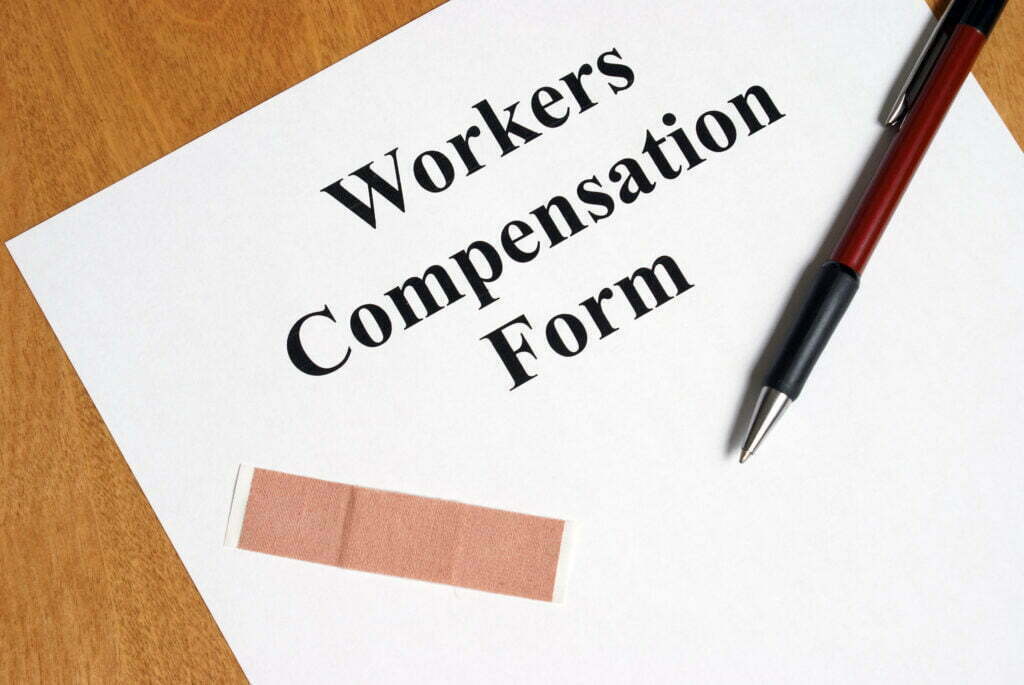When it comes to workman’s comp cases, it’s important to know who all of the players are. If you’ve been injured at work, then there’s no doubt that you’ve probably heard of the North Carolina Industrial Commission (often abbreviated to NCIC or sometimes just IC). The NCIC is the government agency that’s in charge of handling all workers’ comp claims — and they’ll be playing a big role in your case.

The North Carolina Industrial Commission (NCIC) was created by the General Assembly in 1929 as part of the state’s new Workers’ Compensation Act. Its purpose is to administer North Carolina’s workers’ compensation system.
In addition to administering benefits for injured employees, the NCIC also handles employer liability issues, such as whether an employer has violated the law.
To do this, the NCIC investigates complaints from employees about their employers and determines if any violations have occurred. If so, the NCIC may issue fines against the employer.

When someone gets hurt on the job, he or she can file a claim with the NCIC. This means that the worker files a formal complaint with the NCIC, claiming that his or her injury was caused by another party’s negligence. Once the worker files a claim, the NCIC will investigate the incident and determine whether the employee should receive workers’ compensation benefits.
If the NCIC decides that the worker deserves benefits, the NCIC will pay him or her a weekly benefit amount based on how much the worker lost due to his or her injuries. These payments are called “compensation benefits.”
In some cases, however, the NCIC may decide not to award benefits. For example, the NCIC may find that the employer wasn’t negligent or that the worker didn’t suffer an injury that would entitle him or her to benefits. In these situations, the NCIC won’t designate any payments to the worker.

A lot of people don’t realize this, but workers’ comp claims do not go to court. If you’re dealing with a workman’s comp case you will never see a judge or jury. So what happens if there is a dispute about your claim?
In this instance, your case will be heard by a Deputy Commissioner employed by the NCIC. The Deputy Commissioner is like a judge. They will listen to both sides of the story, consider all of the evidence such as doctors’ testimonies, and will ultimately file a final decision. This decision is called an Opinion and Award.
Whoever doesn’t win the Opinion and Award has the option to file an appeal to the Full Commission. The Full Commission is made up of a panel of three Commissioners. They will reconsider all of the evidence which will be presented to them by the Deputy Commissioner who originally heard your case.
During this time the attorney for each side gets 20 minutes to tell the Full Commission what they should be looking at. The Full Commission also has the opportunity to ask questions. Once they come to a clear decision, they can determine the outcome of the case.
The holiday season is upon us. The stores are bustling and full of decorations, many people are planning holiday dinners, and everything seems to be a bit busier than usual. While the holidays can be a fun and exciting time of year, they can also be exhausting, bring many negative emotions, and can lead to holiday stress.
If you’ve suffered work injuries, your holiday season might be slightly different than it has been in years past. But it’s important to remember that experiencing stress and depression around the holidays is entirely normal. It’s okay to feel sad or frustrated.

The holidays are stressful enough without worrying about getting injured at work. But unfortunately, many employers don’t offer adequate protection for employees who suffer workplace injuries during the busy season.
If workers’ comp insurance does not cover you, you may be responsible for paying out of pocket for medical bills, lost wages, and other expenses associated with your injury. And if you’re self-employed, you may not qualify for benefits because you aren’t considered an employee.
Workers’ comp laws vary by state, but most states require employers to pay for certain types of medical treatment and disability payments when an employee suffers a work-related injury.
Many people experience feelings of isolation and loneliness. If this happens to you, don’t hesitate to reach out to your community. Whether you volunteer somewhere or attend a religious or social event, do something that helps connect you with other people.
It can be difficult, but remember, saying no to things is okay. If you’re not feeling up for visiting with people or cooking food for the family, it’s okay to opt-out. What’s most important is focusing on your recovery.
The holidays mean more physical activity than usual. Whether you’re shopping at the mall or visiting family, there’s no doubt that you’ll be walking more during this busy season. And when you walk, you may sustain injuries.
You must file a claim with your employer’s insurance company if you’ve been injured. But wait! Before you do anything, take care of yourself. Get medical treatment for your injury and stay off work until you recover.

The holidays are stressful times for everyone. They’re filled with family gatherings, parties, shopping, travel, and food. But we should be aware of some health hazards associated with the holidays.
Holiday stress can lead to injury. Whether it’s due to overindulging at holiday events, working too hard during the holidays, or simply being tired after a long day, the holidays can cause serious injuries.
Workers’ comp claims spike during the holidays because employees often take leave days off to attend holiday celebrations. This leaves them vulnerable to workplace accidents.
And let’s not forget the dangers of alcohol consumption. Alcohol abuse during the holidays can lead to many types of injuries, including car crashes, falls, slips, trips, burns, and poisonings.
If you suffer from chronic pain or illness, you may need to adjust your holiday expectations. And if you’ve been injured on the job, you may consider filing a claim through your workers’ comp insurance company.
Overexerting yourself can make your injuries worse. It’s a good idea to set aside time for yourself and take lots of breaks. Being realistic about what you’ll be capable of doing can also help reduce stress. Come up with a game plan and be ready to adjust it to accommodate how you’re feeling.
Of course, if you find yourself struggling or feeling very depressed, don’t hesitate to seek guidance from a professional.
This is a question that often comes up when clients are dealing with a workers’ compensation case. Many are concerned that they’ll have to add searching for employment to their list of things to worry about while recovering from their injury. While there is no requirement that says you have to quit your job when you settle your case, it’s still possible you may find yourself unemployed after your settlement.

Settlement agreements are common in personal injury cases. They’re used when a person is injured at work and wants to settle his/her case out of court. The settlement agreement usually includes compensation for medical bills, lost wages, and possibly future medical expenses.
However, there are some things to consider before settling your case. First, you should be aware of the risks involved in settling your case. Second, you need to understand the legal process and how settlements work. Finally, you must weigh the benefits of settling against the costs of going through trial.
When evaluating whether to settle your case, ask yourself these questions: Is this case worth fighting? Are you willing to risk losing? What are the chances of winning? Will the cost of litigation outweigh the value of the settlement?
There are many factors to consider when deciding whether to settle your case. But ultimately, it comes down to weighing the pros and cons of each option.

Often, an employer will ask you to resign as part of a separate workers’ compensation settlement agreement. These settlements are usually for significantly more money than what would cover your disability rating, mainly if it is a permanent disability.
This could happen because when you’re offered a more significant workers’ compensation settlement, the insurance company pays to give up their obligation for your future benefits and medical care. So, for example, let’s say you were allowed to return to work for light duty after a compensation payment of $50,000 for your shoulder injury. If you returned to work six weeks later and re-injured your shoulder, you would have the $50,000 from your first claim and be able to start a new one.
The most common settlement offered to injured employees is a lump sum payment. This means you receive a single amount of money, sometimes paid out over several years.
However, some employers prefer to pay you weekly or monthly instead of offering a lump sum. These payments are often referred to as “periodic payments.” Periodic payments are typically made over a more extended period than lump sums.
When negotiating a workers’ compensation settlement, it’s essential to understand the difference between these two options. Make sure you ask questions during negotiations to ensure you’re getting the best deal possible.

While you can be asked to resign, it is illegal for an employer to fire you for filing for workers’ comp.
But their boss would have encouraged the rumor that they were fired…or at least, they won’t do anything to correct the rumor.
This is because if employees think that the claim caused a coworker to be fired, it will prevent other employees from filing a claim themselves — which means that the employer will save money. You shouldn’t let these rumors prevent you from submitting your workers’ compensation claim.
You may be entitled to benefits if your employer says they cannot pay you anymore. Workers’ Compensation benefits help injured employees recover from work-related injuries. Benefits may include medical care, disability payments, and vocational rehabilitation services.
However, there are some exceptions to this rule. If your injury was caused by intentional misconduct, you’re not eligible for benefits. Also, if you quit your job because your employer refused to pay you, you’re not qualified either.
But if your employer refuses to pay you, you may still qualify for benefits. To determine whether you’re eligible, contact an attorney who specializes in workers’ comp law.



Are you wondering whether you should file a claim with your health insurance company? Or maybe you’ve already filed a claim and are worried about paying back any bills your health insurance plan paid.
When you file a claim with your healthcare provider, you may be required to pay back any medical expenses covered under your health insurance policy. This includes co-pays, deductibles, and even co-insurance.
Read on if you’re unsure whether you have to pay back these expenses. In this article, we’ll go over how to find out whether you have to pay these costs back. We’ll also examine the pros and cons of filing a claim versus paying back these expenses yourself.

Like many things in the world of workers’ comp, there is no easy yes or no: the answer depends on a few factors. If your health insurance is an Employee Retirement Income Security Act (ERISA) Plan, you will likely have to pay back at least some of the money. Frequently, multi-state employers carry these kinds of plans.
On the other hand, if you have a local health plan, chances are you won’t have to pay them back. However, to ensure you won’t have to pay it back, you’ll need to have your attorney put the proper language into your settlement documents.
If your workers’ comp claim is denied and your health insurance is denying coverage, send a copy of your Form 61 to your insurance company. This will notify them that you are not receiving workers’ comp benefits and that they are supposed to begin covering your bills.
You may receive a letter from your insurance company asking for details about your workers’ compensation claim. If this happens, you’ll want to have a conversation with your attorney as soon as possible to discuss the next steps.
The benefits depend on several factors, including the type of injury, whether you were working when you got hurt, and whether you need long-term care.
Social Security Disability Insurance (SSD) is a federal program that helps disabled individuals who meet specific requirements. To qualify for SSD, you must be unable to perform a substantial gainful activity due to a physical or mental impairment.